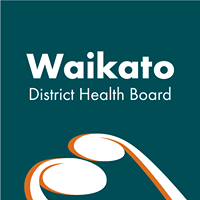Success of Inaugural Midland Region Quality Conference
Inspiring speakers who challenged health professionals
in Rotorua on Friday to “Keep our patients safe” made
the inaugural Midland Region Quality Workshop a success even
before it finished.
More than 150 from the region’s five district health boards – Waikato, Bay of Plenty, Tairawhiti, Taranaki and Lakes – along with representatives from primary health organisations and aged care organisations heard from a variety of speakers.
Midland is the only region in the country to have a patient safety conference supported by the Health Quality and Safety Commission.
Lakes DHB chief executive Ron Dunham and Waikato DHB primary strategic liaison Jan Adams, the regional leads for quality, welcomed participants.
Mr Dunham outlined the workforce challenges faced by the health sector in the next decade, adding that quality improvement measures would be a key means of providing answers to workforce issues.
Health Quality and Safety Commission chief executive Dr Janice Wilson talked about “Being open to a challenge: patient safety and the national patient safety campaign.”
Representatives from Lakes, Taranaki Waikato and Bay of Plenty spoke about patient safety.
The afternoon session focussed
on consumer engagement and making a difference for the
patient experience.
Speakers included former Consumers Institute chief executive David Russell who spoke about what a complex world it was now. For the past seven years Mr Russell has been self-employed with a specific interest in health from a consumer perspective.
“Innovation over the past 70 years has been remarkable,” he said, resulting in:
Creation of ever
increasing inequality
Quest for knowledge by
consumers
Role of the internet
The ever present
rogues.
“Consumers have rights. There must be an impartial and effective process to lay a complaint. It must come from the top and be genuine,” said Mr Russell.
The final speaker was Waikato University associate
professor Samuel Charlton who talked about human factors.
Prof Charlton is head of the School of Psychology and a
member of the Traffic and Road Safety Research Group for the
past 20 years.
His work examined a range of road
transport issues such as driver attentiveness and fatigue,
drivers’ perceptions of risk, acute protracted error
effects associated with alcohol, the effect of cell phones
on driver performance, the conspicuity and comprehension of
hazard warning signs and the design of self-explaining
roads.
ends



 PHARMAC: Pharmac Consulting On Widening Access To Venetoclax, Azacitidine And Upadacitinib
PHARMAC: Pharmac Consulting On Widening Access To Venetoclax, Azacitidine And Upadacitinib Pharmaceutical Society of NZ: Launch Of PSNZ Position Statement And Priority Areas Of Focus
Pharmaceutical Society of NZ: Launch Of PSNZ Position Statement And Priority Areas Of Focus Jack Yan: A Farewell To Arms Re-released, In The Form Ernest Hemingway Intended
Jack Yan: A Farewell To Arms Re-released, In The Form Ernest Hemingway Intended Baycourt Community and Arts Centre: Talofa Papa - A Celebration Of Laughter, Love And Family
Baycourt Community and Arts Centre: Talofa Papa - A Celebration Of Laughter, Love And Family Bikesport NZ: 2025 Honda New Zealand Motocross Grand Prix At Woodville - Greatest Show On Turf A Memorial Event
Bikesport NZ: 2025 Honda New Zealand Motocross Grand Prix At Woodville - Greatest Show On Turf A Memorial Event Crohn's and Colitis NZ: Camp Purple Live 2025 - Celebrating A Decade Of Fun And Friendship For Kids And Teens With Inflammatory Bowel Disease
Crohn's and Colitis NZ: Camp Purple Live 2025 - Celebrating A Decade Of Fun And Friendship For Kids And Teens With Inflammatory Bowel Disease